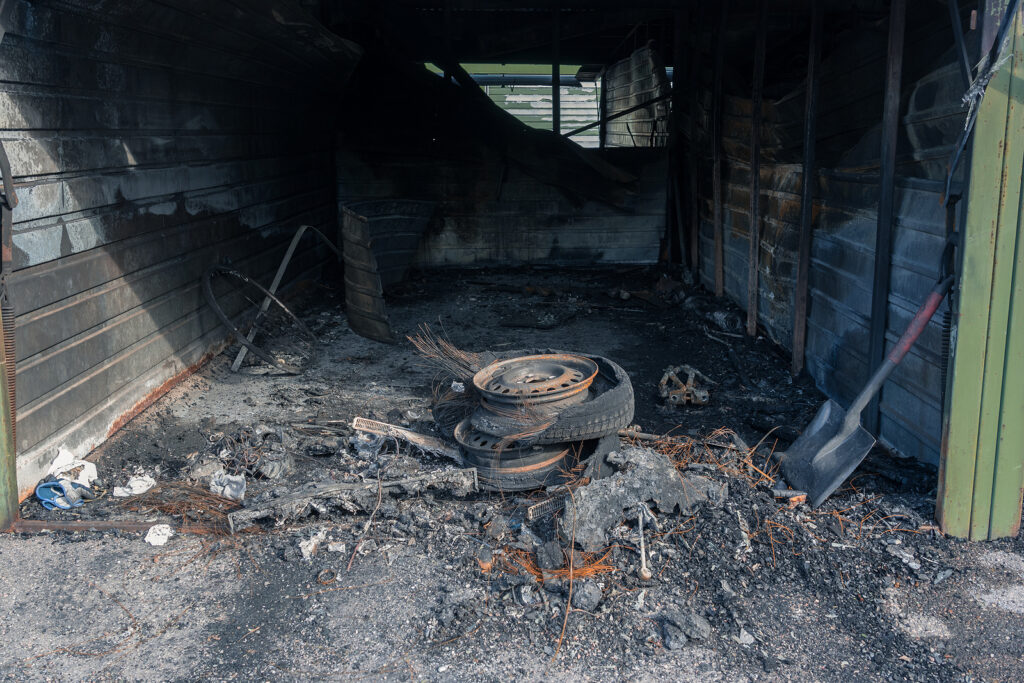No one wants to think about a fire in their home but the best way to keep one from happening is to make your home safe and be prepared. Managing the products you have stored away, from cleaning chemicals to old paint, can make a huge difference—not only in preventing fires but avoiding issues with putting out and cleaning up after them. Learn how household fires and hazardous home products can prove a dangerous combo if you’re not properly storing and disposing of this waste.
Proper Handling and Storage of Hazardous Waste
Keeping yourself safe from hazardous waste fires starts with learning more about your household products and handling and storing them safely, including keeping them away from other hazards:
- Read Product Labels Carefully: Before buying and storing household products, make sure to read the labels. This will help you make more informed decisions and these products may have storage or handling requirements to avoid issues.
- Store VOCs Away From Ignition Sources: Oil-based products often contain Volatile Organic Compounds (VOCs). These include things like paint thinners, oil-based paints, gasoline, and other fume-emitting products.
- Keep Certain Products Away From Water: Certain products can react violently with water, such as lithium-based batteries and several kinds of chemicals. Store these products away from water and any humidity; often the best option is air-tight containers.
- Know What to Do During a Chemical Spill: If you have a chemical spill emergency at home, the combination of chemicals can cause toxic vapors, chemical burns, and even fire. Learn what to do in a household chemical emergency.
How Hazardous Waste Can Affect Firefighting
Having high amounts of hazardous waste in your home isn’t just a hazard to you in the case of a fire, but to everyone around you, too. Many hazardous products release toxic chemicals when burned, and those same products that react violently to water can pose challenges to firefighting efforts. If a fire does break out in your home, make sure to disclose to any first responders any potential hazards to them or the neighborhood so protective measures can be taken.
After a House Fire: Hazardous Waste Remediation
If you did suffer a housefire, or fire damage to an outbuilding like a shed or garage, it’s important to take inventory of any hazardous products or materials that were damaged or destroyed in the fire, and what possible remediation needs to be done to make the site safe. Hazardous chemicals, toxic smoke soot, and after-effects of water damage like black mold all need to be addressed before restoration or demolition can begin.
NEDT is on standby if you have any questions or need help disposing of hazardous waste, including situations where you need to call in the specialists. For commercial hazardous waste services like spill response and remediation, contact us on our commercial website to learn more. Of course, the best way to avoid these issues is to get hazardous waste out of your home. Learn how NEDT can easily dispose of household hazardous waste and find out more by contacting us today or calling us at 1 (866) 769-1621.



Leave a Reply